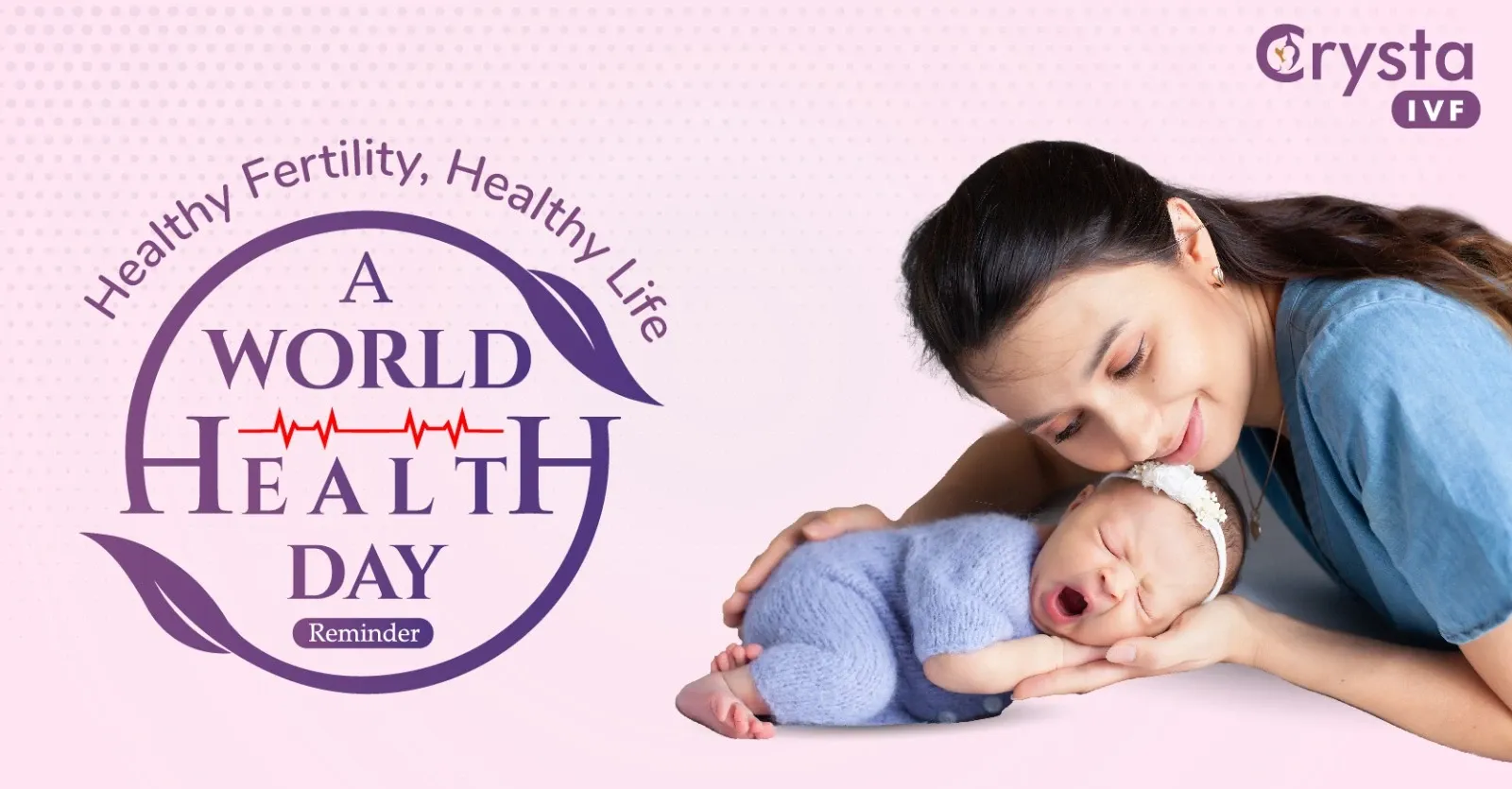As we celebrate World Health Day this 7th March, it’s essential to remember that our health encompasses all aspects of our well-being, including our fertility. While fertility health may not be something we often think about until we’re ready to start a family, it’s actually a critical aspect of our overall health throughout our lives.
It is estimated that about 1 in 5 (22%) married couples have problems conceiving their first child. So, whether you’re in your 20s or your 40s, there are simple steps you can take to ensure your fertility health is in good shape.
In this blog post, we’ll explore why your fertility health should be a priority on World Health Day and provide practical tips to help you maintain optimal fertility health. So, let’s dive in.
Fertility Health & Factors That Affects It
Before we delve into the importance of fertility health, let’s first understand what it means.
Fertility health refers to the overall health and well-being of your reproductive system, including your ability to conceive and carry a healthy pregnancy to term. It encompasses a wide range of factors, such as the quality of your eggs or sperm, the regularity of your menstrual cycles, and the health of your uterus and fallopian tubes.
Many factors can impact your fertility health, including:
- Age
- Genetics
- Lifestyle habits
- Overweight
- Medical conditions
- Toxins & chemicals
For instance, smoking, alcohol consumption, and a poor diet can all have a negative effect on fertility health, while maintaining a healthy weight and managing stress can help to promote optimal fertility health.
Also Check: Q and A on Infertility and Reproductive Health by Fertility Expert Dr. Nidhi Sehrawet
Why Should Fertility Also Be a Priority?
While fertility health is often associated with the ability to conceive, it’s important to recognize that it’s also closely linked to our overall health. Many of the lifestyle factors and medical conditions that can impact fertility health can also affect other areas of our health, such as cardiovascular health and mental health.
The impact of infertility on mental health
The emotional stress and uncertainty that often accompany infertility can lead to anxiety, depression, and relationship difficulties.
Studies have shown that women experiencing infertility report levels of anxiety and depression similar to those diagnosed with cancer or heart disease. Men can also experience feelings of sadness and frustration during the infertility journey.
In addition to the emotional toll, infertility can also be financially burdensome.
Therefore, it’s become essential to start taking your fertility health seriously and get the right information and medical advice on time.
The role of fertility health in family planning and reproductive rights
Fertility health plays a crucial role in family planning and reproductive rights. By prioritizing your fertility health, you can make informed decisions about when and how to start a family. It also allows you to have more control over your reproductive choices and enables you to advocate for your own reproductive rights.
For individuals and couples who are struggling with infertility, access to affordable and effective fertility treatments can be essential for exercising their reproductive rights.
How to Prioritize Your Fertility Health?
There are many steps you can take to prioritize your fertility health, including:
Maintain a healthy weight
Being overweight or underweight can impact fertility by disrupting hormone levels and menstrual cycles. A healthy body mass index (BMI) can help support reproductive health and increase your chances of conceiving.
Eat a balanced diet
A diet rich in fruits, vegetables, whole grains, and lean protein can help support reproductive health by providing essential nutrients such as folate, zinc, and omega-3 fatty acids. On the other hand, a diet high in processed foods, saturated fats, and sugar can negatively impact fertility.
Avoiding smoking and excessive alcohol consumption
Both smoking and heavy alcohol consumption have been linked to decreased fertility in both men and women.
Managing stress
Chronic stress can interfere with ovulation and sperm production, so it’s important to prioritize stress management techniques such as exercise, mindfulness, and self-care.
Limit exposure to environmental toxins
Exposure to certain environmental toxins such as pesticides, lead, and BPA can negatively impact fertility. Take steps to limit your exposure to these toxins by using natural cleaning products.
Consider fertility preservation
If you’re not ready to start a family yet but want to ensure your ability to have children in the future, consider fertility preservation. Women can freeze their eggs, while men can freeze their sperm to use later when they’re ready to start a family.
By making these simple lifestyle changes and staying on top of your reproductive health, you can help support your fertility health and increase your chances of conceiving when you’re ready.
Also Read: Tips on how to Achieve Optimal Fertility Through Diet and Nutrition
When to Seek Professional Help for Fertility Concern
If you’re trying to conceive but having difficulty, it’s natural to feel worried and frustrated. While some couples may conceive within a few months, others may take longer. However, if you’ve been trying to conceive for over a year without success, it may be time to seek professional help.
Similarly, if you have irregular periods or have been diagnosed with conditions like polycystic ovary syndrome (PCOS), it’s best to consult a fertility specialist. Remember, seeking help doesn’t necessarily mean you have infertility issues, but it can help identify any underlying conditions that may be affecting your fertility.
So, don’t hesitate to reach out to a doctor or a fertility specialist if you’re concerned. They can help guide you on the best course of action to help you conceive.
A Word From Crysta IVF
This World Health Day, let’s start focusing on fertility health too, and normalize communication. Healthy fertility equals a healthy future for generations to come.

And if you have any concerns about your fertility health, don’t hesitate to get in touch with the fertility experts at Crysta IVF. With years of experience in performing assisted reproductive technologies, we can guide you toward achieving optimal fertility health and help you start the family of your dreams.
Let’s make fertility health a priority in our lives and celebrate World Health Day with a renewed commitment to our overall health and well-being.




